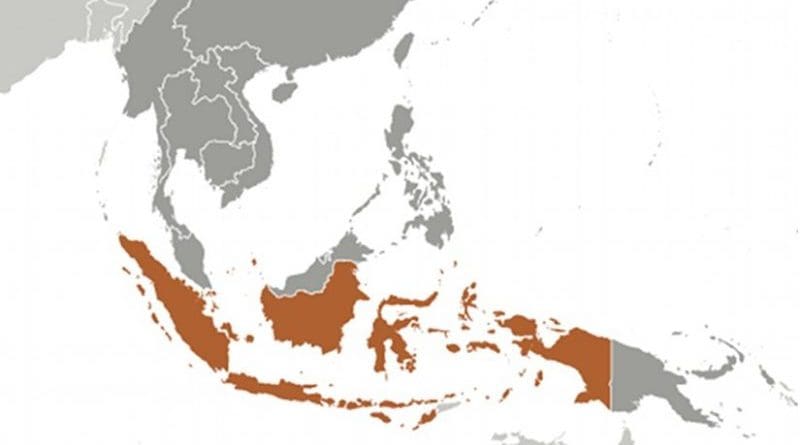The 2015 Muhammadiyah Muktamar: Narrow Win For Moderates – Analysis
By RSIS
Muhammadiyah’s 47th congress was marked by a fierce theological debate between its moderate and conservative members. While a moderate candidate was eventually elected as its new chairman, the conservative contender came very close to taking over the organisation.
By Alexander R Arifianto*
Muhammadiyah, Indonesia’s second largest Islamic organisation, held its muktamar or national congress from 3 to 7 August 2015 in Makassar, South Sulawesi. Unlike its traditionalist cousin the Nahdlatul Ulama (NU), Muhammadiyah’s founding philosophy is to purify Islam from man-made and syncretic elements – what Muhammadiyah members called “superstitions, innovations, and mystics” (tahyul, bid’ah, and khurafat). However, it historically advocates such reforms through peaceful dialogue and political moderation rather than a more radical path.
A number of key issues were discussed during the five-yearly congress. First, activists debated whether Islam as practised by Muhammadiyah members should follow a universalist paradigm, as advocated by conservative members of the organisation; or should it follow one in which Islam is practised within the Indonesian socio-cultural context, as argued by progressive and moderate members. The latter introduced the concept of “Islam with Progress” (Islam Berkemajuan) to highlight that while Islam’s fundamental principles are universalist and timeless, they need to be reinterpreted to reflect the context of a modernising Indonesian society, by utilising independent reasoning (ijtihad).
Other key issues & leadership contestation
Second, a consensus was reached for Muhammadiyah to legally challenge newly-passed national laws that were considered to be unjust for its 30-million members by taking these laws to the Constitutional Court (Mahkamah Konstitusi). The Indonesian Constitution mandates the ownership of natural resources and other key economic sectors to fall to the Indonesian state. Muhammadiyah’s legal challenges resulted in the Court to rule Indonesia’s Oil and Gas Law and Water Resources Law to be unconstitutional.
However, the main agenda of the muktamar was to elect a new general chairman to lead Muhammadiyah for the next decade, as Din Syamsuddin, its outgoing chairman, could no longer be re-elected after completing two-consecutive five year terms (2005-2015). Congress delegates wanted a new chairman who could mediate between the moderate and conservative factions within the organisation, which Din Syamsuddin did effectively.
Two leading candidates emerged among members of the Muhammadiyah leadership board. The first was Haedar Nashir, a sociology lecturer with Muhammadiyah University in Yogyakarta. He is a long-time Muhammadiyah activist who has served in numerous leadership positions for more than three decades, including as chief editor of “Muhammadiyah Voice” (Suara Muhammadiyah), the organisation’s official weekly newsmagazine.
Haedar wrote his doctoral dissertation on the growth of new conservative Indonesian Islamic organisations such as Hizbut Tahrir Indonesia (HTI) and Majelis Mujahidin Indonesia (MMI), which have popular following among young Muhammadiyah members. He argued that unlike first-generation Islamic reformist organisations such as Muhammadiyah, the new organisations are “promoting an integralistic and reductionist interpretation of the shari’a and demanding its institutionalisation within the Indonesian state”.
If these organisations – HTI and MMI _ managed to increase their influence among Indonesian Muslims, it can lead to growing intolerance of Muslim minorities and non-Muslims among Muhammadiyah members. Due to these conclusions, Haedar’s candidacy came under attack from conservative activists, who accused him of being a ‘liberal’ Muslim.
The conservative contender
The second candidate was Yunahar Ilyas, a professor of Islamic theology (usluhuddin) at Sunan Kalijaga State Islamic University in Yogyakarta, who was a former board member of the Indonesian Ulama Council (MUI). He led the Special Revelation and Propagation (tabligh and da’wah) Department, which organises Muhammadiyah’s religious teaching and propagation activities, for a decade (2000-2010).
Yunahar is known for his criticisms of Muslim minority sects. For instance, he believes Shiism is a ‘time bomb’ that threatened the unity of the Indonesian ummah and that there can be no reconciliation between Shi’ite and Sunni believers. He also has urged the Indonesian government to outlaw the Ahmadi community in Indonesia, arguing as long as they are not prohibited, they will continue to “encourage conflict among themselves and Indonesian Muslims who are true believers”.
Yunahar’s candidacy received strong support from conservative Muhammadiyah members, and among younger activists within the organisation. For instance, Dahnil Anzar, chairman of Muhammadiyah Youth (Pemuda Muhammadiyah) argues that “Muhammadiyah needs to be led by an intellectual alim who understands Islam as the solution for all lives and society’s problems,” alluding to Yunahar’s status as an ulama. Aggressive behind-the-scene lobbying by Yunahar’s supporters propelled his candidacy in the muktamar, almost outmanoeuvering Haedar.
Realising a conservative takeover of the organisation would have occurred had Yunahar won the chairmanship election; the progressive faction developed an alliance with Din Syamsuddin’s faction during the final round of the election. While Haedar eventually won the chairmanship position, there were only 19 votes separating him from Yunahar in the final round of voting, indicating strong support among conservative and young Muhammadiyah activists for Yunahar’s candidacy.
Epilogue
The conclusions of the recent Muhammadiyah muktamar highlighted the continuing struggle between moderate and conservative members of the organisation on how to interpret Islam, how the organisation should play its role in Indonesian politics, and who should lead Muhammadiyah for the next decade.
Haedar Nashir’s election as its new general chairman reflects the continuing dominance of the moderate establishment within the organisation. However, strong support for Yunahar Ilyas among young Muhammadiyah activists means that this dominance is increasingly being challenged by more conservative members. As conservatives increasingly fill Muhammadiyah’s leadership positions, its moderate, pro-democratic outlook might be eclipsed over time.
As chairman, Haedar needs to carefully manage the division among moderate and conservative camps within Muhammadiyah and to retain its reputation as an Indonesian Islamic organisation with a moderate and modernist outlook.
*Alexander R Arifianto PhD is a Research Fellow with the Indonesia Programme, S. Rajaratnam School of International Studies (RSIS), Nanyang Technological University, Singapore.

